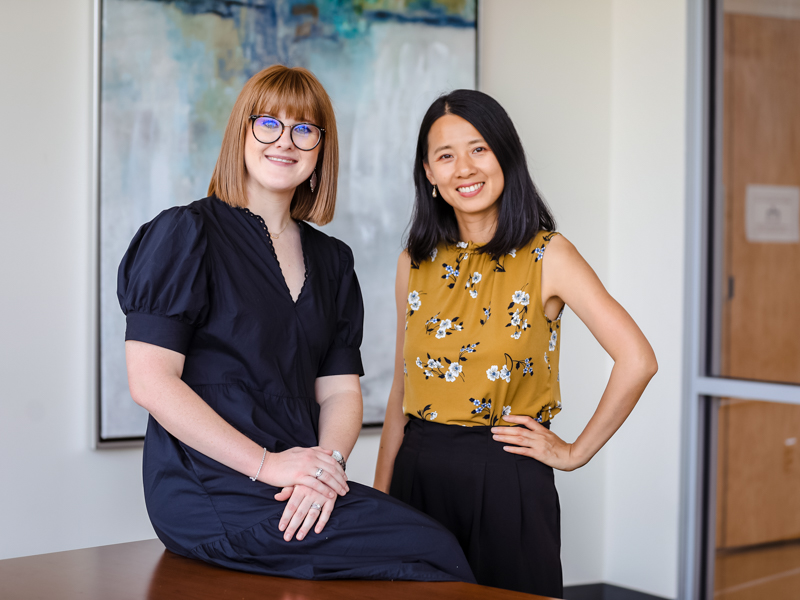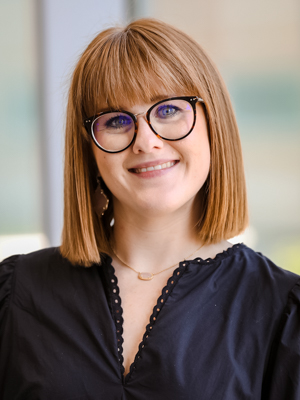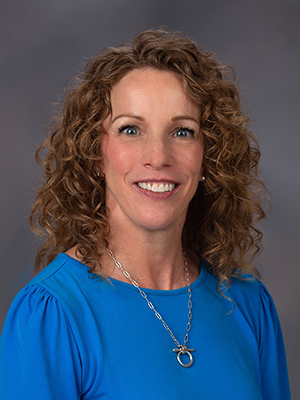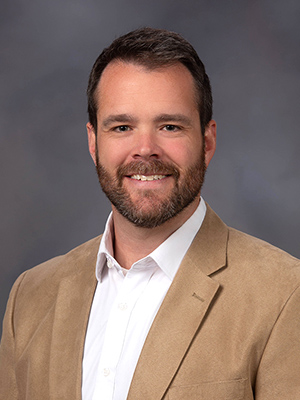UMMCGrad2022: SOPH’s first PhD recipients shine

The University of Mississippi Medical Center’s newest school will grant its first doctoral degrees this Friday at the Mississippi Coliseum.
The John D. Bower School of Population Health will hood six PhD graduates from two departments – population health science and data science – demonstrating the growth of the school since its creation in 2016.
Rachel Tyrone, a speech-language pathologist and instructor in the Department of Otolaryngology-Head and Neck Surgery, decided to complete a PhD in population health science. Meanwhile, Xiaoqian (Jenna) Zhu pursued at PhD in biostatistics and data science.

“I knew I wanted to pursue a PhD and stay in Mississippi,” said Tyrone, a Lawrence County native. “Being the first program in the state of its kind was intriguing in itself.
“This degree matches well with my interest in promoting overall child health and development and grow my skills in research.”
Population health science is an interdisciplinary field that probes why different groups of people experience different health outcomes and looks for potential solutions. This broad scope allows students like Tyrone to draw from their professional background as they form research questions for their dissertation.
Her dissertation focused on adverse childhood experiences (ACE). While Tyrone says these events are broadly defined, some examples include loss of a parent or a home, divorce, abuse or neglect. Any of these events can affect a child’s health and well-being in multiple ways.
For instance, “children exposed to these events may not meet developmental milestones, which can effect outcomes later in life,” she said, such as their readiness for and performance in school.
This work connects with Tyrone’s role in Mississippi Thrive!, a grant-funded consortium seeking to address the health and developmental challenges facing the state’s children under age five and connect them with appropriate help and services. She has mentored a few fellows through this program, in addition to continuing clinical work in her specialty, feeding and swallowing disorders.
Outside of her work and primary studies, Tyrone took advantage of the SOPH’s additional training opportunities. She was a Dr. Robert Smith Scholar with the Jackson Heart Study’s UMMC Graduate Training and Education Center, a mentored program on cardiovascular epidemiology. She also participated in the SOPH’s Health Policy Fellowship.
Tyrone is still working on Thrive-related projects and exploring ways to continue teaching and training the next generation of health professionals. At home, she enjoys plenty of time with her husband, sisters and family in Mississippi.
Dr. Jennifer Reneker, assistant dean for scholarly innovation in the SOPH and Tyrone’s dissertation chair, said Tyrone’s sense of motivation to learn and build her skills sets her apart.

“She pursued this [PhD] degree already having a clinical degree and license, and while working with Mississippi Thrive,” Reneker said. “Now, she can merge this training with her unique love of pediatrics, and I believe she will carry that forward as she becomes an independent researcher.”
The SOPH also has doctoral students graduating from its biostatistics and data science program.
Zhu studied and worked in business in China before deciding to pursue higher education in the United States. She finished her MS in biostatistics and data science at UMMC in 2019 then entered the PhD program.
Her dissertation used advanced statistical and machine learning methods to develop new equations for estimating glomerular filtration rate, or GFR. The best available index of kidney function, GFR can be measured directly but the procedure is cumbersome and not feasible for every patient, Zhu said. Therefore, it is usually estimated from equations based on serum creatinine, as well as demographic factors like the patient’s age and sex.

“Uncertainty in eGFR is well-recognized but not fully appreciated, and I wanted to quantify that uncertainty,” she said. Zhu found that while eGFR is useful for understanding kidney disease at a population-level, the uncertainty means that it’s “not really accurate when applied to individuals.” The American Society of Nephrology featured this work during its 2021 meeting.
Since her second year at UMMC, Zhu has had a research assistantship at The MIND Center, where she worked on multiple projects related to brain health and aging.
“This work exposed me to others kinds of real-world research problems and allowed me to collaborate with epidemiologists,” she said. “I’m very fortunate to have had that opportunity.”
While Zhu grows her skills at UMMC, at home she focuses on growing her collection of indoor and outdoor plants. Of the dozens she has, she cannot pick a favorite.
“They are all my favorites,” she said.
Dr. Seth Lirette, assistant professor of data science, said Zhu was a “blessing” as an advisee.

“She’s a hard worker, a team-player and doesn’t hesitate to ask a question,” Lirette said of Zhu. He said her ability to looks at problem set and come up with solutions is a sign she will be a great independent researcher.
“She’s free to run with a project without much hand-holding,” he said.
Dr. Natalie Gaughf, interim dean of the SOPH, said the graduation of these students and their classmates is an “extremely significant milestone” for the school
“We’re already seeing our students becoming successful and they are finishing their degrees on-time,” she said. “It demonstrates that our academic programs have developed the maturity, expertise and ability to train students who are productive in research and preparing full dissertations.”


